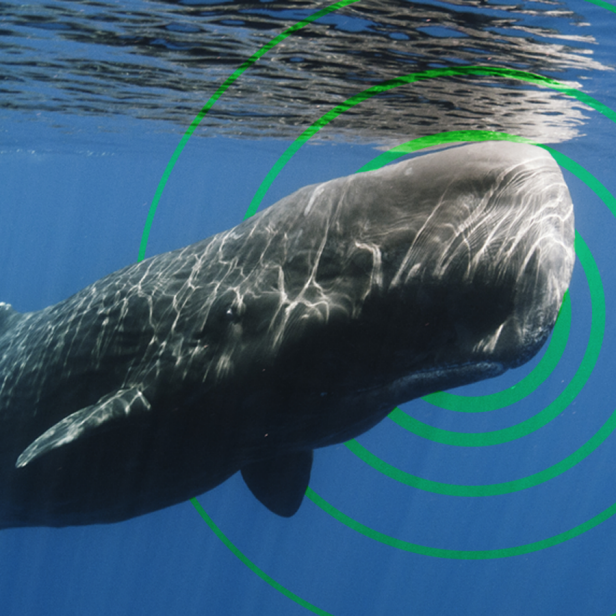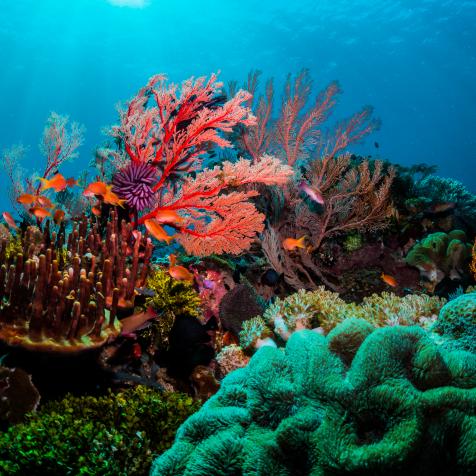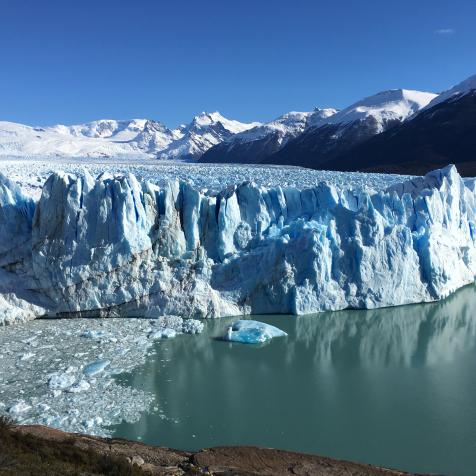
Shutterstock
Sperm Whales Are Loud Enough to Burst Your Eardrums
The world's loudest animal happens to live in the ocean.
What's the world's loudest animal? You might think the roar of a lion or the trumpet of an elephant is deafening, but it turns out that the loudest call on the planet happens beneath the ocean.
Big Whale, Big Sound
Decibels are the unit scientists use to measure the intensity of sound. An everyday conversation, for example, is around 50 decibels; a jackhammer can top out at 100; and 150 decibels is generally considered enough to burst your eardrums.
The loudest sound ever recorded by NASA was the first stage of the Saturn V rocket in 1967, which thundered at a blistering 204 decibels. That's only slightly larger than the 200-decibel click of a sperm whale's echolocation, which speaks to the animal's impressive power. Pressure waves such as sound travel differently in water than they do in air, however, and the click would sound slightly softer on land, at around 174 decibels. But, hey, still enough to rupture your eardrums.
This raw power comes in handy during echolocation, which the whales use like sonar to hunt for food and navigate the ocean. Scientists once theorized that whales also used their impressive clicks to stun or even kill giant squid, but that theory was proven wrong when a research team played recordings of whales at the appropriate volume for a swarm of prey and were unable to do harm.
This article first appeared on Curiosity.com.


















